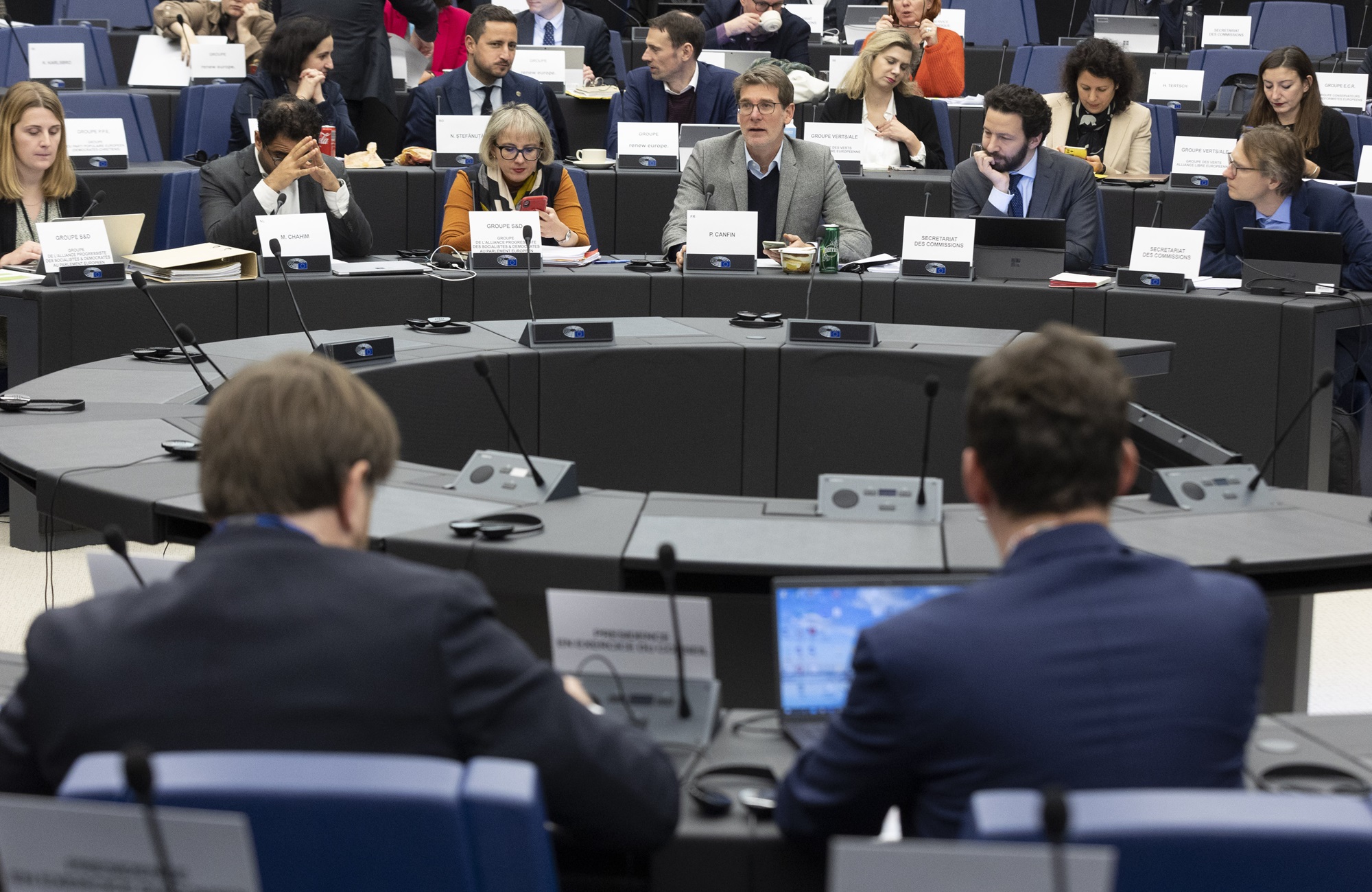The European Union’s Carbon Border Adjustment Mechanism (CBAM), a carbon levy on certain goods entering the EU, is designed to advance the cause of climate adaptation both within the bloc and around the world. CBAM could be an effective tool in pushing the global economy to become greener, but in its current form risks harming the economies of developing countries and hampering climate adaptation globally. CBAM could be a great step forward, but it must not leave developing countries behind.
CBAM was designed to counter carbon leakage, a phenomenon that refers to EU companies moving production outside of the EU or importing products from countries without carbon taxes in order to get around the EU’s Emissions Trading System (EU ETS). As far as the EU is concerned, carbon leakage undermines the bloc’s green policies and opens up EU companies who follow the rules to unfair competition. CBAM will therefore levy a tax that is equal to the price of carbon under the EU ETS on imports, with the caveat that non-EU producers can deduct this tariff if they are subject to a carbon tax in their own country.
Beyond carbon leakage, another touted benefit of CBAM is its potential to promote global industrial decarbonisation by nudging other countries into setting their own carbon price. In this sense, it marks a step towards addressing an internationally disorganised carbon taxation system by applying a uniform carbon price to domestic and imported products alike in the EU.
CBAM might participate in the so-called ‘Brussels Effect,’ whereby EU regulation creates a ‘race to the top’ for global regulation. Such an effect was first observed in 2012 by Columbia Law Professor Ana Bradford when she described how the EU, through a combination of market size, stringent standards and regulatory capacity, can elevate standards throughout the world. The Brussels Effect was first conceived of as de facto influence, whereby companies that operate both inside and outside the EU found it was not logistically practical to maintain lower standards outside the EU, thus allowing EU regulation to govern their global operations. CBAM might similarly influence global trade, by dealing with direct regulation of foreign producers.
Another benefit that EU policymakers rarely state explicitly is that the tax will generate revenue for the bloc, which has been trying to make itself less dependent on contributions from member states. The European Commission estimates that annual revenues from the tax will reach €9.1 billion by 2030, which it plans to use to reimburse the borrowing under NextGenerationEU, the EU’s 2020 Covid recovery package.
CBAM's potential shortcomings
Though the EU touts all these benefits, the policy has attracted international criticism; namely from India, China and Brazil, who claim that it violates the World Trade Organization (WTO)’s principle of non-discrimination. The Commission contests this. Beyond legality, an often overlooked effect of CBAM is that it could harm global efforts at climate change adaptation by stunting the growth of developing countries, particularly in Africa. A joint study between London School of Economics (LSE) and the African Climate Foundation in 2023 estimated that Africa would be the most negatively affected of the major economic regions, as CBAM could result in a decrease in exports from Africa to the EU; in aluminium by up to 13.9%, iron and steel by 8.2%, fertiliser by 3.9% and cement by 3.1%. The study projected that this could cause Africa’s GDP to fall by 0.5%. Carlos Lopes, the Chair of the African Climate Foundation, asserted that CBAM “is likely to hit the competitiveness of African exports” and “introduces administrative hurdles to market access by African countries, which have historically struggled to access the European market.”
As well as having direct economic impact, these hurdles might perpetuate wider imbalances in global trade that disadvantage developing countries. Through CBAM, African countries might be forced to accept unfavourable terms of trade to maintain access to European markets, or else turn to China and India to negotiate trade arrangements.
CBAM could also exacerbate existing inequalities within Africa, since the more economically developed countries who have already made progress in transitioning to low-carbon economies will be most likely to maintain access to European markets under CBAM. According to modelling by LSE and the African Climate Foundation, 11 of the world’s least developed countries located in Africa (notably the Gambia and Mozambique) would “experience a moderate to large negative impact to their GDP by more than 1.5% and up to 8.4%” if CBAM were applied to all imported products. The most vulnerable African countries then would be the worst affected and could find themselves left behind in the global effort to adapt to climate change.
For all the economic harm CBAM could cause, it is not even likely to spread carbon pricing initiatives in the developing world, since less developed countries do not have the resources to implement those measures. Analysis from the Centre for Global Development, drawing upon the World Bank’s database of carbon pricing measures across countries, suggests that “the vast majority of lower income countries are a long way from implementing any carbon price, let alone one that targets the relevant industries”.
African nations may have to consider other measures to tackle the negative impact on trade and industrialisation, including export mechanisms and potentially the accelerated implementation of the African Continental Free Trade Area.
"The EU must go beyond paying lip-service to international climate finance. Otherwise, the economic fallout for Africa will soon become real."
Measures could be taken to mitigate the fallout for lesser developed countries. CBAM could provide an exemption for the least developed countries (LDCs), in line with the EU’s Everything But Arms scheme which removes tariffs and quotas for all imports of goods (except arms and ammunition) coming to the EU from LDCs. Revenues from CBAM could be used to finance LDCs’ efforts towards climate adaptation, and the decarbonization of their manufacturing industries.
Within the regulation text of CBAM, the EU reiterated its commitment to supporting climate mitigation and adaptation in low-income and middle-income countries, albeit “within the ceiling of the EU’s multiannual financial framework [budget] and the financial support to international climate finance.” Such a commitment must be genuine, and the EU must go beyond paying lip-service to international climate finance support. Otherwise, the economic fallout for African nations will soon become real.
CBAM could be an effective tool in promoting global climate adaptation, but its implementation, as it is designed right now, is flawed. The EU’s policy is a great step forward, but it must not risk leaving developing countries behind.
Hugo Harvey is a Franco-Irish freelance journalist based in London.
Further reading:

- Opinion
- By Thomas Marois
- 14 July, 2023






